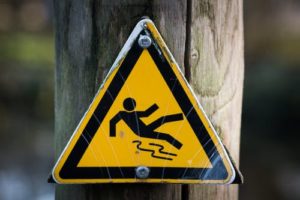News Update:
In April 2020, a research article was published by the American Medical Association linking hearing loss to balance problems. Researchers reported those with a moderate level of hearing loss are twice as likely to have a balance problem. Additionally, a national US survey (ages 40-69 years old) found that for every 10-dB increase in hearing loss there was a 1.4-fold increase in the odds of the individual reporting a fall.
American Medical Association linking hearing loss to balance problems. Researchers reported those with a moderate level of hearing loss are twice as likely to have a balance problem. Additionally, a national US survey (ages 40-69 years old) found that for every 10-dB increase in hearing loss there was a 1.4-fold increase in the odds of the individual reporting a fall.
How Does my Hearing Affect my Balance?
The association between hearing loss and balance problems can be explained by a vestibular disorder.
The vestibular system (the organ used for balance) and the cochlea (the organ used for hearing) are closely connected both anatomically and physiologically. Consequently, with hearing loss there may be underlying vestibular loss as well, even without vestibular symptoms, such as dizziness.
Some studies suggest auditory cues are necessary for environmental awareness.
Reduced awareness due to hearing loss may impair the ability to control your balance in real-world environments and lead to falls.
Do I Need Physical Therapy if I Have Hearing Loss?
New evidence suggests balance is often impaired or overlooked in patients with hearing loss. Clinically, it may be reasonable for people with hearing loss to be screened for balance performance and fall risk
How to Address Hearing loss and/or Balance Concerns:
-
Contact your doctor to have your hearing loss and balance evaluated
-
Your doctor may refer you to see a physical therapist to address your balance impairments.
-
Reminder: Maryland is a direct access state, meaning some insurances do not require a referral from your doctor to see a physical therapist. If you have concerns about your balance you can schedule an appointment with a physical therapist today!